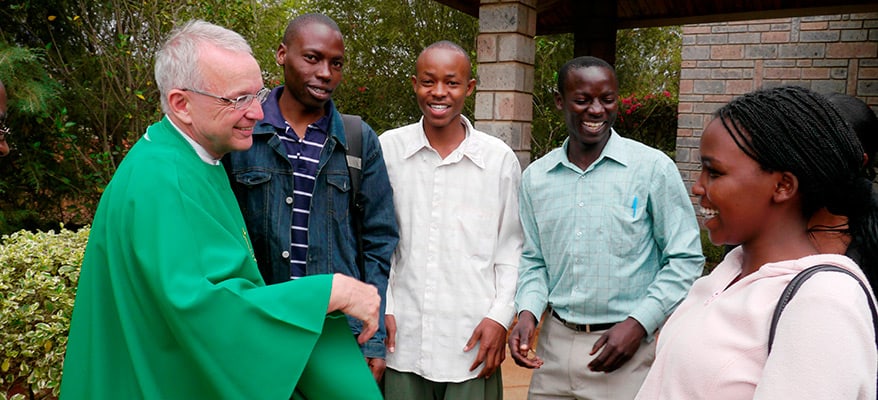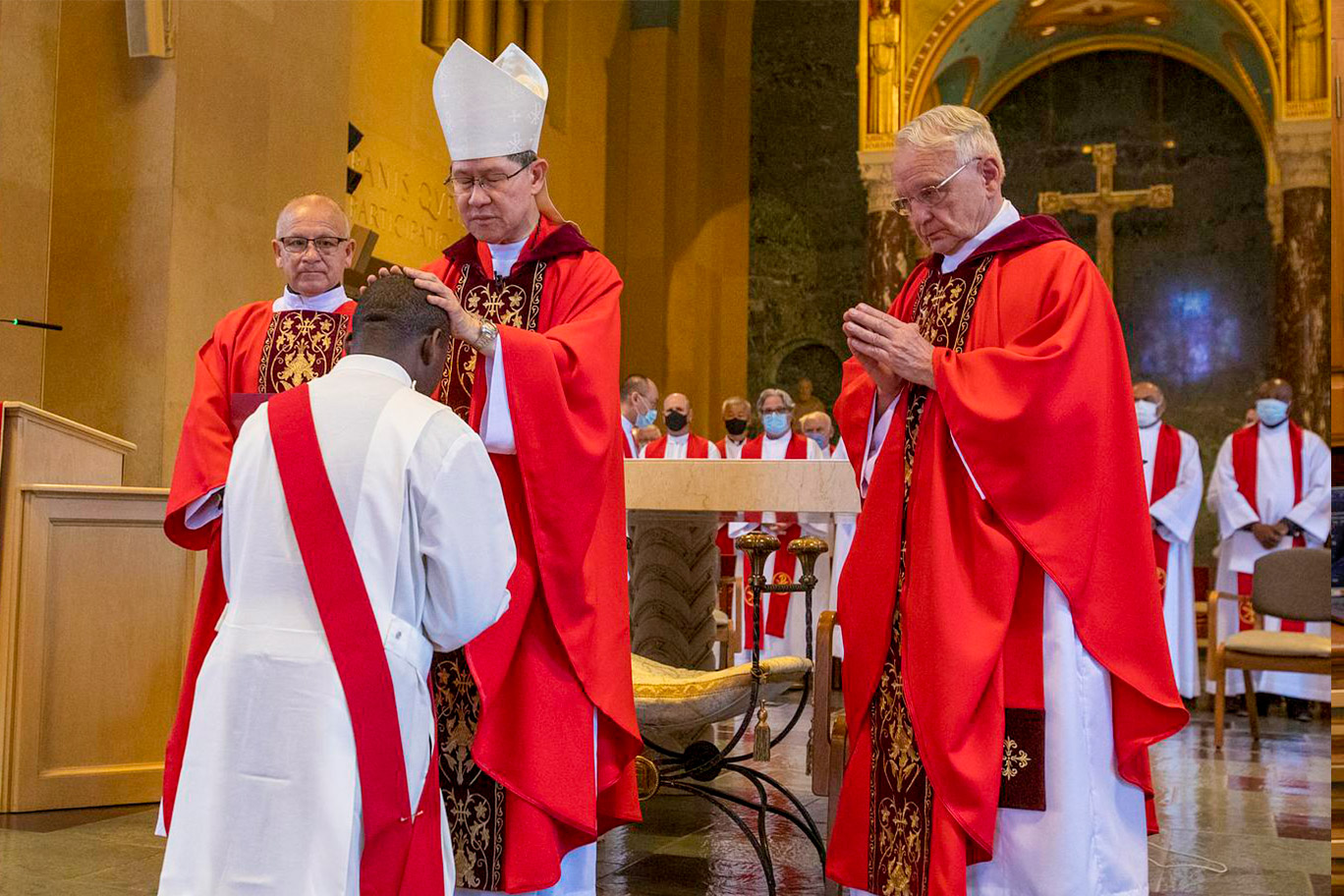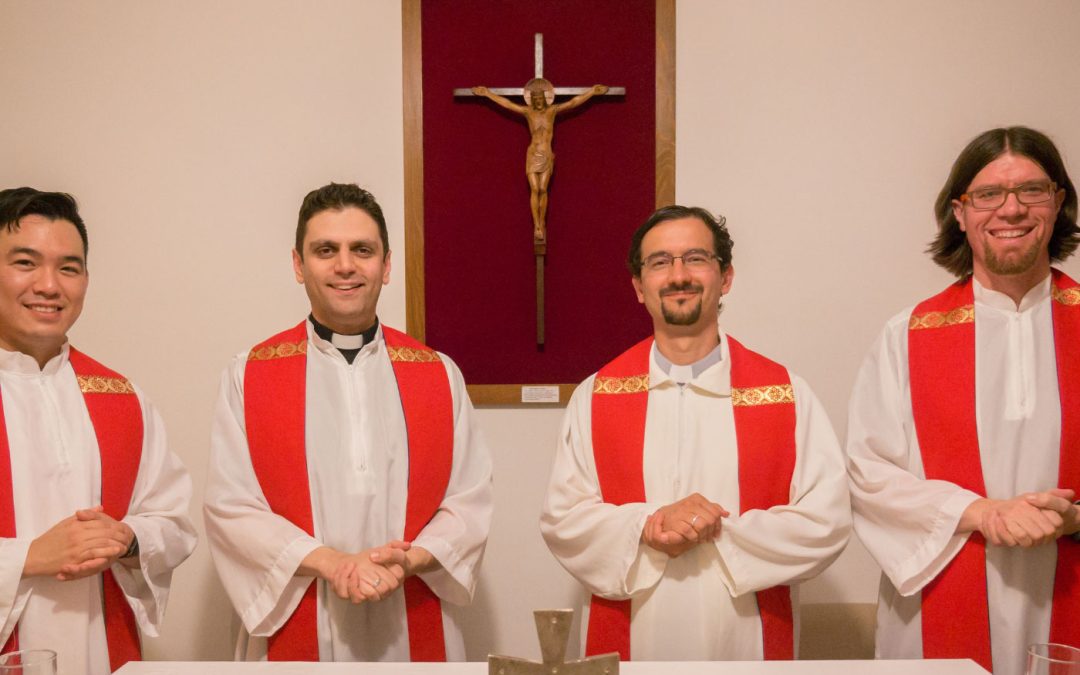
World Mission Day, Journey of Faith
Today the entire Church celebrates World Mission Day, an event created by Pope Pius XI in 1926. Since that time, now nearly 100 years ago, the Pope composes a message for the reflective meditation by Catholics worldwide. It is intended to deepen the missionary consciousness and commitment of all the faithful. The title of this year’s message is: “You shall be my Witnesses,” (Acts 1:8).
Pope Francis begins by noting that the celebration of World Mission Day is to remind us that “the Church is missionary by nature” and that “the call of every Christian [is] to bear witness to Christ.” Just as Christ was the first “missionary” of the Father, “every Christian is called to be a missionary and witness to Christ.” Indeed, “to evangelize is the very identity of the Church.”
A Deeper Look. If we pay focused attention to Christ’s call, we will appreciate many aspects of “the mission Christ entrusted to the disciples.” All disciples “are urged to live their personal lives in a missionary key; they are sent by Jesus to the world not only to carry out, but also above all to live the mission entrusted to them; not only to bear witness, but also and above all to be witnesses of Christ.”
“The essence of mission is to bear witness to Christ, that is, to his life, passion, death and resurrection” and to his “love of the Father and of humanity.” “Missionaries of Christ are not sent to communicate themselves…. Instead, theirs is the supreme honor of presenting Christ in words and deeds, proclaiming to everyone the Good News of his salvation, as the first apostles did, with joy and boldness.”
Further Insight. Pope Francis goes on to say that “when it comes to Christian witness, the observation of Saint Paul VI remains ever valid.” Paul VI noted: “Modern man listens more willingly to witnesses than to teachers, and if he listens to teachers, it is because they are witnesses” (Evangelii Nuntiandi 41). It is noteworthy that Saint John Paul II quoted this same insight it his mission encyclical (Redemptoris Missio 42).
Pope Francis goes on to assert that “the testimony of an authentic Christian life is fundamental for the transmission of the faith.” Yet, the proclamation of Christ’s person and message is equally necessary. In short, this means that for evangelization
“the example of a Christian life and the proclamation of Christ are inseparable. One is at the service of the other. They are the two lungs with which any community must breathe, if it is to be missionary.”
Personal Invitation. Pope Francis requests each of us to become a “consistent and joyful witness of Christ” and a “force of attraction for the growth of the Church.” “I exhort everyone to take up once again the courage, frankness, and parrhesia [boldness] of the first Christians, in order to bear witness to Christ in word and deed, in every area of life.”
James H. Kroeger, M.M.
30th Sunday in Ordinary Time
Send me your Holy Spirit, O Lord,
that it may in turn send me
out into the world to witness to your love,
your mercy, your justice, and your truth.
Give me your grace, my God,
to love as you love, to be merciful
as you are merciful, to be just
as you are just and to live the truth
that you alone are God, all loving,
all merciful, and all just.
Send me out each day from my room,
my home, my comfort zone
to a world that longs for true peace.
Give me wisdom to proclaim
your good news no less through silence
than through words,
through deeds no less than
through holy patience waiting
for the right time to act.
Above all help me to live your Gospel
in everything I do or say and
find your presence in everyone I meet.
For you alone are the creator of all,
the savior of all humankind and
the redeemer in whose divine image
everyone on earth is made.
Amen.
By Fr. Joseph Veneroso. M.M.
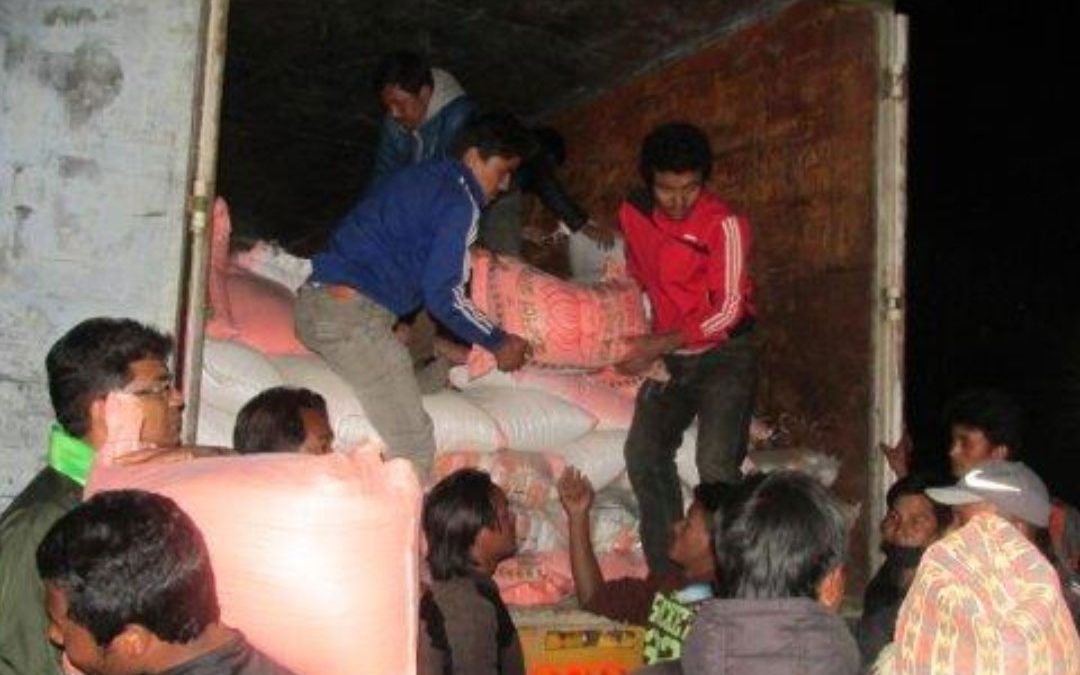
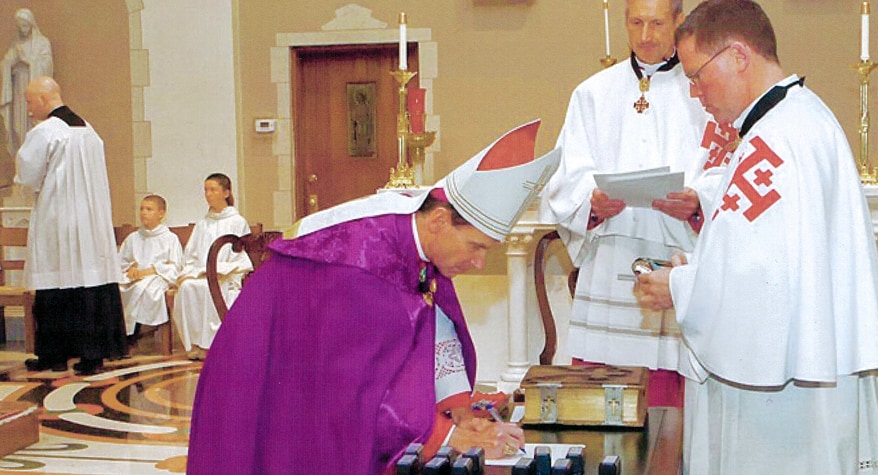
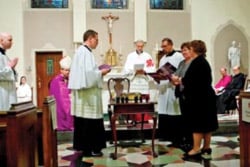 Bishop Michael Burbidge, from left; Father James F. Garneau, Episcopal Delegate for the Cause; Msgr. Jerry M. Sherba, Chancellor of the Diocese who administered the oaths; Father Ja Van Saxon, Promoter of Justice; Angela Godwin Page, Actual Notary and Maureen Foster, Adjunct Notary, gather on Friday, March 9, in Raleigh for a prayer service and to take an oath, beginning the diocesan phase of the Cause for Beatification and Canonization of Father Thomas Frederick Price.
Bishop Michael Burbidge, from left; Father James F. Garneau, Episcopal Delegate for the Cause; Msgr. Jerry M. Sherba, Chancellor of the Diocese who administered the oaths; Father Ja Van Saxon, Promoter of Justice; Angela Godwin Page, Actual Notary and Maureen Foster, Adjunct Notary, gather on Friday, March 9, in Raleigh for a prayer service and to take an oath, beginning the diocesan phase of the Cause for Beatification and Canonization of Father Thomas Frederick Price.

